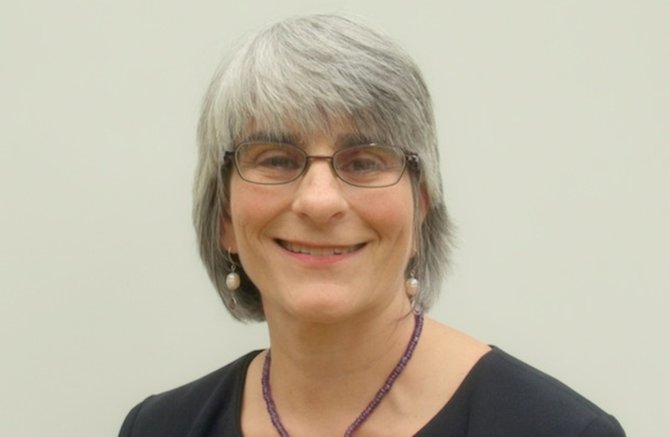Beth Orlansky, advocacy director of Mississippi Center for Justice, urges the Mississippi Department of Human Services to amend House Bill 49 to address concerns about the law’s impact on needy families.
Poor Mississippi children could go hungry if their parents test positive for drug use under a new state law that was supposed to go into effect on July 1, but has been delayed.
Civil-liberties advocates and community members met with the Mississippi Department of Human Services Tuesday to discuss concerns about the controversial drug-testing law passed in January that affects those receiving public assistance.
While the law, House Bill 49, was supposed to take effect July 1, the Mississippi Center for Justice and the American Civil Liberties Union of Mississippi urged MDHS to delay its implementation in order to hold a public hearing.
"I shudder to wonder what would have happened if the ACLU, the ACLU of Mississippi, and the Mississippi Center for Justice had not been paying attention. Would this law have just been implemented and these policies put out without any benefit of the public having the opportunity to be heard?" Jennifer Riley-Collins, executive director of ACLU of Mississippi, said Tuesday.
The law would require Temporary Assistance for Needy Families recipients to complete a questionnaire and possibly face a drug test if their answers suggested they use illegal drugs. Riley-Collins said the ACLU and Center for Justice have several concerns about HB 49, from what the testing instrument will actually look like to how the state plans to pay for it.
The questionnaire has not yet been released for public review, although the ACLU has submitted a public-record request for it. Riley-Collins said that while the MDHS website initially displayed a request for proposal for development of a screening instrument, it has since been taken down.
"We are hoping to be able to see what the drug screening instrument is, whether it's the SASSI that is being used in Utah or another instrument that has been developed by possibly a local contractor," Riley-Collins said.
According to its website, the Substance Abuse Subtle Screening Inventory (SASSI) has a 94 percent accuracy rate and takes an average of 15 minutes to take and score. But the testing method is only one of ACLU and MCJ's concerns, which is why they encouraged the delay for a public hearing as in accordance with the Administrative Procedures Act.
"We are concerned that the rules as promulgated, the policy as promulgated—that it is ambiguous, that it does not address who will pay for the drug testing as well as the drug treatment. We know that the out-of-pocket cost for drug treatment can range anywhere from $12,000 to $15,000 (per person)," Riley-Collins said.
Mississippi legislators, like Rep. Sam Mims, R-McComb, who sponsored the bill, say the law is designed to further assist those in the state living in poverty who have substance abuse problems. "It's about helping these people become better moms, become better dads, become better community members," Mims said.
Mims said those who test positive will continue to receive TANF while in treatment, but will be cut off from those services if they test positive at the end of the treatment. However, the ACLU and MCJ worry that the source of funding for the treatment has not been discussed.
"The legislators that proposed it argued on the floor that, 'We want to help these people. We want to help these people get drug treatment,' but nowhere in the law or in the rules does it say whose going to actually pay for the drug treatment," Riley-Collins said.
During the first year that the drug-testing law for welfare recipients was implemented in Utah, the state spent $30,000 and found 12 people who tested positive for drugs. Gov. Phil Bryant said he expects Mississippi's program to cost about the same.
A federal judge, however, struck down a similar law in Florida, which mandated drug testing for all welfare recipients without a questionnaire, last year.
Furthermore, Mississippi's HB 49 gives a whole household sanction when a parent tests positive—meaning children lose their benefits, too.
The law has no provision to protect children, like the protective payee provision implemented in other states that treats children of parents with substance abuse as a surrogate to receive TANF benefits.
Beth Orlansky, advocacy director of Mississippi Center for Justice, said TANF serves almost 16,000 low-income children each month, which amounts to 70 percent of TANF recipients.
"If HB 49 goes into full effect, children will go hungry because of the mistakes of adults. This is completely unacceptable. Our leaders must take notice and change this law," Orlansky said.
Riley-Collins said the law is ultimately an unnecessary waste of taxpayer dollars that would be better put to use in another program. But for some, the effect of HB 49 is not just a grievance—it could be devastating. "Families rely upon that $160. One-hundred and sixty dollars may not seem like a lot for you or me, but not all families that receive TANF receive all of the other quote unquote public benefits," Riley-Collins said.
It could also be a problem if a TANF recipient cannot attend the drug screening when required because of conflicts with school or work, which is also a requirement to receive TANF, Riley-Collins said. She added that there needs to be a provision that allows recipients a second opportunity to attend the screening.
"Because if you lose your job or you're not going to school, then you no longer qualify for the benefit, right? It's a catch-22," Riley-Collins said.


